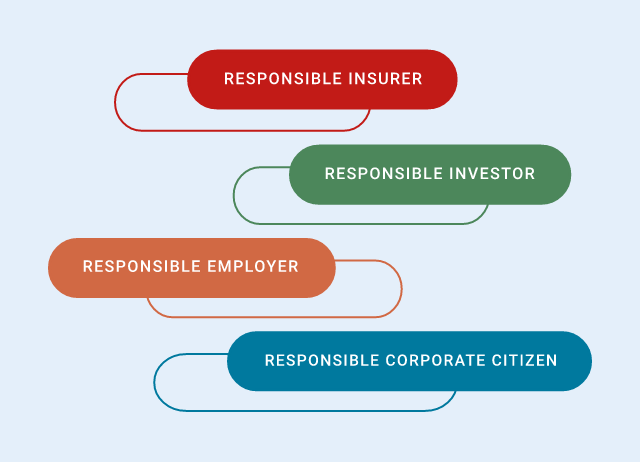10 October 2024
World Mental Health Day: mental well-being and work at the heart of the 2024 edition
From commitment to the Manifesto for psychological well-being in the workplace to the podcast dedicated to mental health, Generali's initiatives to celebrate the international day that falls every year on October 10th
Like every year, World Mental Health Day is celebrated all over the world on October 10th. The anniversary, promoted by the World Health Organization (WHO), has been internationally recognised since 1992 to remind that mental health is an essential part of our overall health, and encourages people and communities to take concrete action to pormote it in all contexts, from work to private life.
The theme chosen for the 2024 edition, “It Is Time to Prioritise Mental Health in the Workplace”, particularly emphasises the importance of recognising and protecting mental health and well-being in the workplace, for people, organisations and communities.
Mental health and workers well-being: a focus on data
According to a recent survey by the Future Forum, 42% of the world’s workforce has had to deal with the effects of “burnout”. This is particularly common among young people and women, who often have to balance work pressures with other personal and family responsibilities.
The failure to protect well-being in the workplace also has significant consequences for companies: according to the WHO, every year in the world there is a loss of about 1,000 billion dollars due to factors such as anxiety and depression, and this is reflected in the 12 billion annual absences from work related to psychological malaise, as well as in the decrease in engagement and performance, negatively impacting the growth and development of companies. A responsibility that extends, also and above all, to those who exercise leadership roles. This is also supported by the WHO itself, which in 2023, for the first time in history, recommended the training of managers and executives for the prevention of stressful work environments.
Generali's commitment to the mental well-being of its people
As a responsible employer, Generali is committed to promoting diversity, equity and inclusion in its work enviroment, offering training opportunities, nurturing talent in all its forms and implementing flexible and sustainable ways of working. This commitment also includes attention to the mental health and psychological well-being of the Group's people.
Promoting psychological well-being in the workplace
Generali has in fact joined the Manifesto for psychological well-being in the workplace, launched in October 2023 by Mindwork, the first Italian company for online psychological counselling in the corporate world. The Group agrees with the definition of psychological well-being contained in the document, which considers this aspect as an integral part of a broader concept of health together with physical, relational and financial well-being.
The psychological well-being of managers and executives is also at the center of the Manifesto as a starting point for healthy leadership, which is also linked to the recognition of individuals beyond their role, to build and nurture relationships that make each person feel welcomed, valued and protected in their uniqueness.
There is a crack in everything, that's how the light gets in
Mental health should not be considered a taboo topic, not even in the workplace. That is why Generali and in particular the Head Office People Care team launched the podcast series "Crepe" (lit. “cracks”), to shed light on the importance of mental health and on sufferings that are not just an individual problem, but a matter of public interest that requires everyone's attention and commitment.
The series gives voice to five people sharing their personal experience on the suffering caused by conditions such as borderline personality disorder, burn out, post-partum depression, anxiety, and bulimia, but above all on their path to rebirth. It is a priority issue: according to the World Mental Health Report, one in eight people in the world suffers from mental disorders and 71% do not receive support from specialized facilities.
A journey that guides towards the understanding of what can be done to face this challenge and the need to promote environments in which open conversations about mental health are actively encouraged and not stigmatized, emphasizing the importance of public recognition and acceptance as fundamental elements in building a healthier and more supportive society.


